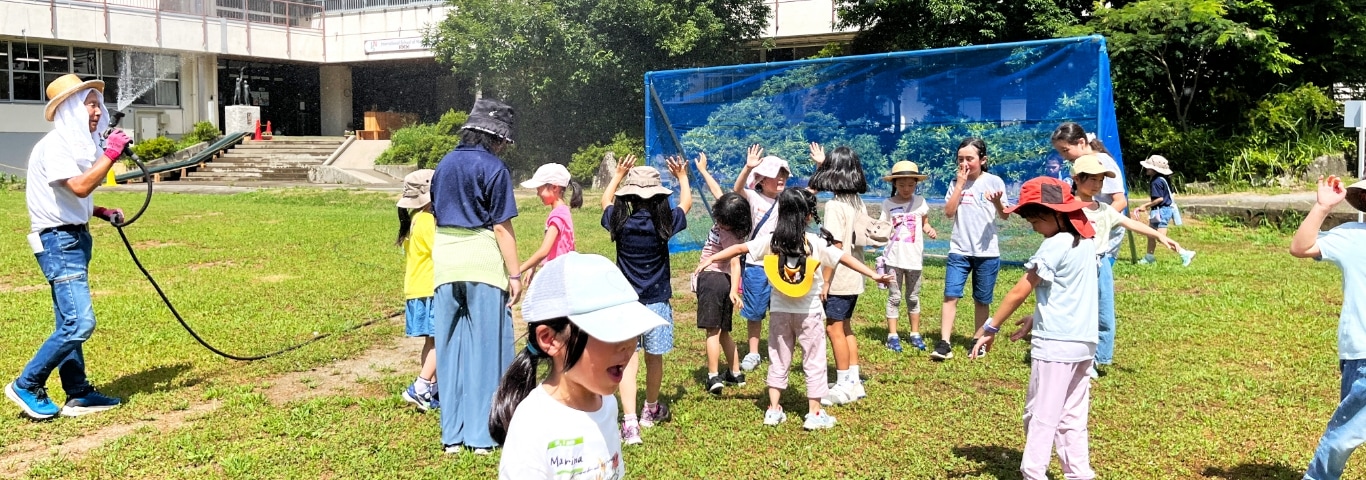ISNが学びの要とする、子供達の個性と心は、
- 子供達の家庭 と、
- 社会生活
を通して、養われるのが自然だと思います。
ISNにとって英語の習得は、その他沢山あるスキルのうちの一つ。”子供達が夢中になって活動に取り組む中での言語習得”だからこそ、意味があると考えています。英語だけ抜き出して学ぶ事に高い価値を見出していません。
お家で出来る事と言えば…
- 英語の(もちろん日本語吹き替えされていない)映画を観る。(既に英語を話す子なら、セリフを真似し足り、お友達とドラマプレーをしだします。)
- CDのついた英語の本を、指で追いながら一緒に聴く/読む。
英語を話すことが出来ない子どもの場合、これだけでは 話せるようにはなりません。話せる子であっても、聞いた言葉を使う場所が無ければ、スピーキングが上達しません。仮に紙上の点数が高くても、英語が上手に話せない日本人のままです。
ISNの生徒の場合、お家でしていただけるサポートに、英語でも日本語でも、またはそれ以外のご両親の母国語でも、早い年齢からの本の読み聞かせが一つあります。
また、この記事を読んでくださっている皆様は、既にお子様へ沢山の愛情を持っていらっしゃる。きっとお休みの日、子供達はご家族の方々と、公園で、一緒に料理、もしくはお祭りや日本文化に触れる機会など、いろんな体験をさせてもらっているのだと思います。そんな心と身体に刺激的な体験の積み重ねや、愛情表現の上手なコミュニケーションが、健康的な成長に、長期にわたり、とてもとても大事であると考えます。
*********************
The children’s family and social life are, together with their individuality, something that we put great importance on at ISN. Therefore, it is natural to think about improving the children’s English through those interactions as well.
I personally don’t think there is much to gain from simply learning English for the sake of learning. The best way to bring the English language closer to the children is acquiring it through activities they are engrossed in and find interesting and entertaining.
Some of the things children can do at home are:
- Watching an movie in English (one that is not dubbed in Japanese). (If the child speaks English already, it will often mimic the dialogue and use it during playtime with their friends.)
- Read books in English together or listen to English CDs together.
In the case of children who can’t speak English already, it is, of course, not possible to make them speak by these methods alone. Even children who do know how to speak English will not improve their speaking skills by listening alone, if they don’t have a chance to use the vocabulary learned. This is a case often seen in Japan, where students who have high scores on written English test might not be able to speak English well at all.
Honestly, since the ISN children are so accustomed to English by now, I’m not sure if I can give any good advice. For ISN students, it’s ok even if the parents don’t put in any additional effort in practising English at home.
ISN students take English and Japanese books home on a daily basis from the ISN library. Additionally, I am sure everyone reading this article already spends a lot of time with their children affectionately. I am sure that through various experiences, like cooking or festival that you take them to, the children have wonderful opportunities to touch upon Japanese culture. The accumulation of such exciting experiences and receiving love from their parents is, after all, what is most important for the childrens’ growth. ❤️

